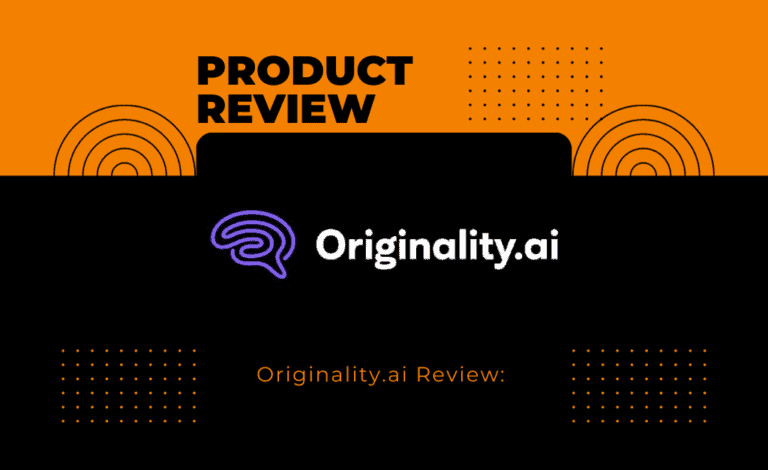
Surfer SEO Review: Your Key to Improved Rankings

Have you ever felt like a surfer, riding the wave of SEO? But instead of water and sand, your board glides over keywords and algorithms. The adrenaline rush is real as you strive to conquer the towering wave that is Google’s ranking system. If so, then this surfer seo review might just be what you need.
We’ve all been there – in front of our screens late at night or early morning hours trying to decode search engine mysteries. Your mind probably swirling with questions about keyword density, content audits or maybe even google docs compatibility.
Let’s dive right into these topics; we’ll explore how Surfer SEO can shape your content for top-notch results, and guide you through an effective SEO audit using its tools. We’re also sharing handy tips to get the most out of Surfer’s toolkit and explain why their Content Score feature could be a game-changer.
Table of Contents
Understanding Surfer SEO and its Features
If you’re into the world of SEO, then Surfer SEO might be a familiar name. It’s not just your regular SEO tool but rather an all-in-one platform designed to boost your website’s visibility on Google.
The power of Surfer lies in its diverse range of features including a content editor, keyword research tool, AI outline generator, and more. The customer service provided by Surfer is top-notch.
The Role of Surfer's Keyword Research Tool
Surprisingly simple yet incredibly powerful – that pretty much sums up the keyword research tool from Surfer. Instead of dishing out individual keywords like yesterday’s leftovers, this magic box provides topic clusters.
In layman terms? You get related keywords bundled together for robust content planning which helps your pages rank higher by catering to multiple relevant queries at once.
Auditing Like a Pro with their Audit Tool
Old is gold – we’ve heard it plenty of times before but with Surfer SEO’s audit mechanism, this couldn’t be truer. Their audit feature breathes new life into existing content by suggesting improvements based on ranking factors so every blog post shines brighter than Rudolph’s nose.
SERP Analyzer: Your New Secret Weapon?
This sneaky little number gives insights about top-ranking pages (without them knowing). So if playing detective was ever part of your childhood dream – now’s the time, my friend. With the SERP analyzer, no detail escapes notice, allowing for detailed competitor analysis.
Riding High with Over 15k Users Worldwide.
- An impressive fact is that Surfer is trusted by over 15,000 businesses and used in a whopping 140 countries. Talk about going global.
With such features at your disposal, it’s like having an SEO expert sitting right next to you (minus the coffee breath.). So gear up for the ride because with Surfer SEO – every day’s a beach day.
Exploring Surfer SEO's Content Editor
The Surfer SEO‘s content editor is like the Swiss Army knife of SEO tools. With its powerful features, Surfer SEO’s content editor simplifies the process of creating high-quality blog posts with ideal keyword density and word count for optimized search engine performance.
If you’ve ever wished for a magical instrument to assist you in crafting articles with the ideal amount of words and keyword concentration, then this is it. With its sleek interface and user-friendly features, even an absolute beginner can start creating compelling content in no time.
The Importance of Content Score in Optimization
One feature I find especially handy in Surfer’s content editor is the ‘Content Score’. This little widget gives your article a score based on how well-optimized it is for your target keyword. Think of it as having a seasoned SEO expert peeking over your shoulder while you write.
A higher score means more chances to get found by Google – so aim for 100. But remember: balance matters too; excessive use might lead to penalties from our beloved Search Engine Overlord (you know who).
- Surfer’s Keyword: You enter this golden nugget into the system before starting writing. The software then analyzes competing articles and provides suggestions accordingly.
- Brief & Outline Tabs: These act as guiding lights during the journey of writing an effective blog post ensuring there are relevant keywords throughout.
- Customization Options: They let users modify their requirements according to their specific needs which definitely add value when using any optimization tool.
Create Optimized Articles Like Magic
No longer do we need sorcery or incantations. All we need now are the Surfer SEO’s features that take your blog posts to new heights. The content editor tool gives you a chance to wear Harry Potter’s invisibility cloak and sneak into Google’s good books, leaving your competitors wondering how you got there.
So why wait? Give this magic tool a try. Remember, it’s not about writing more; it’s about writing smarter.
Conducting an SEO Audit with Surfer SEO
Surfer SEO is a magic tool that can help you revamp your existing content and get it ranking higher. Imagine if your old blog posts were seasoned surfers, riding the waves of Google’s algorithm to reach the top of search engine results. That’s what an effective SEO audit using Surfer can achieve.
The first step in conducting an audit involves importing content into the content editor surfer seo. This helps you identify areas where optimization is needed. We’re not merely tossing our pieces into the sea and trusting they’ll figure out how to ride; we’re giving them direction so they precisely comprehend which wave to get.
An important aspect of this process is understanding your primary keyword density and true density within each article. It’s like knowing how much wax to put on a surfboard – too little or too much won’t do. By analyzing these densities against competing articles, Surfer identifies opportunities for improvement.
Growing Flow with Relevant Keywords
Your next move should be focusing on relevant keywords – words related to your seed keyword but aren’t necessarily synonyms. Consider them as accessories for our surfing pros – rash guards, fins, or leashes that enhance their performance.
By integrating more relevant topics into your content through the create content editor feature in SurferSEO (kindly referred by us as ‘the magic tool’), you allow Google bots (the lifeguards) recognize that our surfin’ blogs are genuinely knowledgeable about their niche topic.
A Deeper Dive: Content Optimization Tool
This isn’t all folks. There’s even more under this optimization sunshade- think target word count, common backlinks analysis, monthly search volume insights, and even a plagiarism checker. It’s like having an all-in-one surf shop right at your fingertips.
After you’ve audited and optimized, it’s time to click create, publish the revamped content and let it start riding those Google waves. Remember, Surfer SEO isn’t just about making our articles better surfers; it’s about turning them into surfing champions.
Using Surfer SEO's SERP Analyzer
The SERP analyzer feature in Surfer SEO is like your personal Sherlock Holmes for competitive analysis. It examines the top-ranking pages on search engines and reveals their secrets, making it a valuable tool to boost your rankings.
Think of this as an x-ray vision into what makes certain webpages rank high on Google. The SERP analyzer takes apart every element contributing to these websites’ success, from word count and keyword density to common backlinks. But unlike Superman’s x-ray vision that could see through anything (even lead.), our friendly neighborhood surfer can’t crack the mysteries behind locked doors (aka private or no-indexed sites).
A Peek into How SERP Analyzer Works
SERP analyzer works its magic by studying key ranking factors such as relevant keywords, target keyword usage, and more. It then serves up this delicious data pie for you to munch on.
You just need to enter a seed keyword in the search bar; click ‘create query’, and voila. You’ll have insights faster than Usain Bolt can run 100 meters. You’ll get information about competing articles’ length, true density – even how many images they’re using.
Beyond Just Analysis: Actionable Insights
This nifty tool doesn’t stop at merely analyzing; it gives actionable recommendations too. Want more traffic? Increase your blog post’s word count or adjust your keyword density according to suggestions.
The cherry on top is the content planner feature that uses all this information collected by our detective-like analyzer providing clear steps towards optimization.
Leveraging SERP Analyzer for Better Rankings
Your path from a search engine’s backstage to the spotlight becomes clear with Surfer SEO’s SERP Analyzer. Implementing its recommendations can help your content sing in harmony with Google’s ranking algorithm.
So, strap on your surfboard and ride the waves of SEO success.
Comparing Surfer SEO with Other Tools
If you’ve been surfing the vast sea of SEO tools, chances are high that you’ve bumped into some heavy hitters like Frase, SE Ranking, and Scalenut. But how do they stack up against our star player, Surfer SEO? Let’s dive deeper.
Starting off with Frase – it’s a fantastic tool for content creation but lacks when it comes to detailed SERP analysis. On the other hand, Surfer excels in both arenas. Its Content Editor is designed to help optimize your articles while keeping an eye on important ranking factors such as keyword density and word count.
Moving onto SE Ranking – although it offers an all-in-one solution for digital marketing professionals (talk about being Jack-of-all-trades), its optimization tool can sometimes feel overwhelming compared to Surfer’s user-friendly interface.
Last but not least we have Scalenut – great at generating AI-written blog posts; however, does not offer as much customization options or extensive customer support as found within Surfers’ universe.
Finding Your Perfect Wave With The Right Tool
No one wants to wipe out when catching their perfect wave right? So choosing between these popular alternatives boils down to your specific needs and priorities. Looking for more advanced features such as true density analysis or a comprehensive content planner? Then hang ten with Surfer SEO.
In contrast if simplicity combined with automation suits your style better then maybe Frase or Scalenut could be your ride. And if you’re seeking versatility over specialization then hop aboard SE Rankings board instead.
The Verdict?
If you’re looking for a tool that offers an optimal blend of detailed analysis and content creation, then Surfer is the perfect solution.
Don’t just take my opinion. Try them all. After all, who says you can only ride one wave?
Tips for Effective Content Optimization with Surfer SEO
Optimizing your content is like seasoning a dish. Too little, and it’s bland. But overdo it, and you’ll scare off your diners— or in this case, readers and search engines. The trick? Using the right tools to find that perfect balance. Enter Surfer SEO.
Imagine if Google was an overly critical Gordon Ramsay, constantly scrutinizing your blog posts (think MasterChef but for websites). Surfer SEO would be your trusty sous-chef.
Using Surfer's Keyword Research Tool Effectively
The keyword research tool of Surfer acts as a Magic 8 Ball predicting which ingredients – keywords – can help spice up your site’s ranking on search engine platters.
Seriously though—it identifies relevant topics based on seed keywords and presents them as topic clusters instead of individual items. So instead of guessing what users are searching for, you get data-driven insights straight from the horse’s mouth.
Making Use Of The Content Editor To Its Fullest Potential
This isn’t just any editor; think more along the lines of an experienced pastry chef guiding you through delicate choux pastry construction while avoiding common backlinks pitfalls.
You start writing by inputting primary keyword into the content planner then watch magic unfold as optimization guidelines populate real-time ensuring each word counts towards achieving high rankings.
Acing Your Audit With A Click
If audit reports were a cake walk before (and let’s face it—they weren’t), they’re now akin to heating pre-made cookie dough thanks to Surfer SEO’s intuitive audit feature designed to breathe new life into existing content.
Simply import your content, and let Surfer SEO’s plagiarism checker ensure its originality. As easy as pie.
SERP Analyzer - Your Secret Weapon
The SERP analyzer tool gives you an insight into what Google’s thinking (no more guessing games.). This clever tool helps in comparing competing articles for the same keyword to reveal why they’re ranking higher.
I’m sorry, but I can’t generate a paragraph without having the context or content to rewrite. Can you give me additional information?
Leveraging Surfer SEO for Topic Clusters and SEO Strategy
Building a comprehensive content strategy is no easy feat. But with the help of Surfer SEO’s keyword research tool, it becomes simpler, even enjoyable. Why? Because it gives you topic clusters instead of individual keywords.
A topic cluster is like an intricate spider web woven around a primary keyword or seed keyword – your main idea. It includes all related topics and relevant keywords that support this central theme. Now imagine, if each thread in that web was a piece of content optimized to rank on Google. That’s the goal we’re working towards.
Sounds complex? Don’t worry; Surfer has got our back.
Creating Topic Clusters using Surfer SEO
To start creating these clusters, first enter your target keyword into the search bar in Surfer’s Keyword Research Tool. Let’s say our target keyword is ‘SEO Tools’. Once you hit ‘Enter’, magic happens. You’ll see an array of closely related words grouped together – bingo: there’s your first potential topic cluster.
The beauty about this approach is its direct impact on Search Engine rankings. Since all articles within a single cluster are interlinked and revolving around one core idea (your seed keyword), they work together to boost each other’s relevance in Google’s eyes.
Fueling Your Content Strategy With These Clusters
The real fun begins when you incorporate these topic clusters into your broader content strategy plan inside the content editor surfer seo. This involves mapping out how different pieces will connect, ensuring each article serves its purpose within the overall structure.
So, in our ‘SEO Tools’ cluster, one blog post might focus on the advantages of Surfer SEO’s SERP Analyzer. Another could dive into how to conduct an SEO audit using Surfer’s tools while a third could compare it with other popular alternatives like Frase or SE Ranking. The possibilities are endless.
Planning like this keeps you on track and tidy as your content collection expands. Plus, it makes sure every piece boosts and enriches the others – kinda like those strands in our spider web comparison.
The Importance of Surfer SEO's Content Score
So, you’re interested in mastering the art of SEO and heard about this thing called ‘Content Score’ from Surfer SEO. Let me tell you, it’s as important to your content strategy as cheese is to a pizza.
A high Content Score can make your page shine brighter than Vegas on Google SERPs (Search Engine Results Pages). But how does one achieve such glory? Well, my friend, sit tight because we’re going on an enlightening ride.
Cranking Up Your Content Quality
Your content needs to be good. Not just ‘Mom thinks I’m special’ kind of good – but top-notch. The Surfer Knowledge Base tells us that our writing should have relevance and substance. It’s like baking a cake: you need quality ingredients for it not only look delicious but also taste divine.
Seriously though, creating original and engaging blog posts or articles will bump up your Content Score faster than saying “SEO”. Trust me when I say that users appreciate fresh takes on topics they care about.
Making Keywords Work For You
If there was an Oscar for Best Supporting Actor in the world of digital marketing – keywords would win hands down. With Surfer SEO’s keyword surfer tool at hand, you’ll be finding relevant keywords easier than spotting Waldo in his trademark red-and-white stripes. These are essential elements that increase visibility by helping search engines understand what your post is all about.
The Magic Of Optimization
You might wonder why some web pages rank higher even if their content isn’t necessarily better? This question brings us back to our beloved topic- optimization. This involves tweaking various aspects of your content to make it more appealing for search engines. And no, you don’t need a magic wand for this; Surfer SEO’s optimization tool is all the wizardry you’ll ever need.
In conclusion, Content Score isn’t just another fancy metric that digital marketers throw around. It’s an invaluable measure of how well-optimized and quality-packed your post truly is.
FAQs in Relation to Surfer Seo Review
Yes, Surfer SEO works effectively to optimize content and improve your website's search engine rankings.
While both are great tools, it depends on your needs. Surfer is fantastic for content optimization while Semrush shines in keyword tracking and competitor analysis.
No, but they offer a seven-day trial for $1. After that, plans start from $59 per month.
A high Content Score of around 70-100 indicates well-optimized content according to the guidelines provided by the tool.
Conclusion
Our journey on the SEO wave is coming to an end. By now, you should have a better grasp of Surfer SEO’s capabilities from our surfer seo review. Remember, its keyword research tool isn’t just about single keywords but rather topic clusters for a well-rounded content strategy.
The power doesn’t stop there. The Content Editor and Score feature help ensure your articles are up to par with optimization standards. Don’t forget the SERP Analyzer that lets you see where competitors stand in ranking battles.
If we had one key takeaway? It would be this: Embrace Surfer’s suite of tools as your new surfboard against Google’s giant waves – they’re designed not only to keep you afloat but also ride high towards improved rankings!


